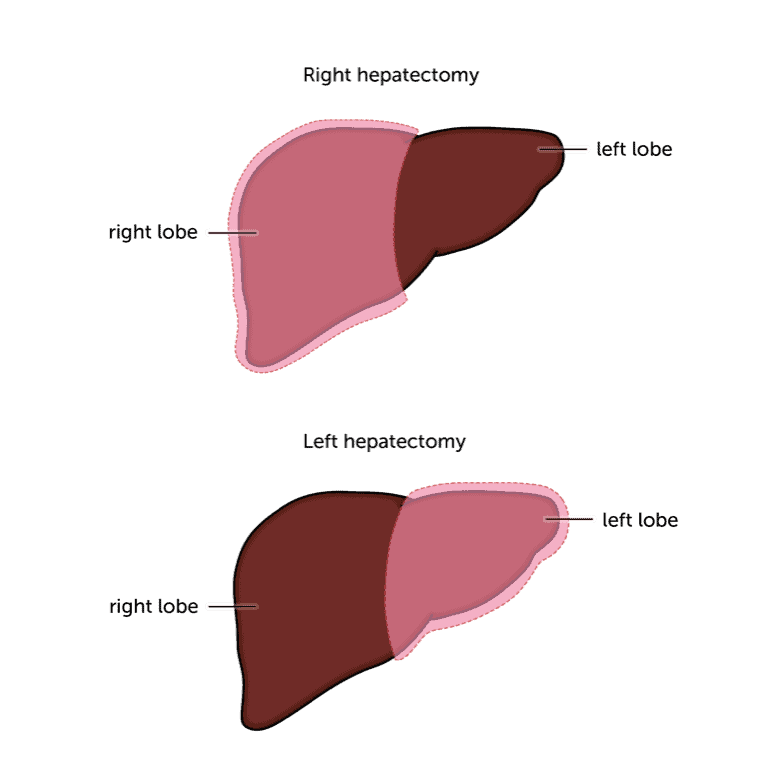There are several different operations you may have for liver cancer.
Taking a tissue sample (biopsy)
Your doctor may need to get a sample of the cancer to help with your diagnosis. This is a minor procedure, sometimes done during other tests. Your doctor will send the sample to be checked for signs of cancer. Looking at the cells under a microscope will help to show whether there is a cancer there and if so, which type of liver cancer it is.
There are a few different ways for a doctor to take a liver biopsy. A biopsy is a test you may have to diagnose liver cancer and not a treatment. So there is more in our information on liver cancer tests.
Liver resection
A liver resection means taking out part of your liver. They will remove the part of the liver containing the cancer. The aim of the treatment is to cure your liver cancer.
Whether you can have a liver resection depends on:
You may have this type of surgery for hepatocellular liver cancer (HCC) or bile duct cancer (cholangiocarcinoma) that is growing within the liver (intrahepatic bile duct cancer).
The liver is made up of two lobes – right and left. Sometimes, it may be necessary to remove a complete lobe. This is called a lobectomy.

Because the surgeon will be removing part of your liver, they need to make sure that the remaining liver is working well enough. The liver is unique in being able to grow back after part of it has been removed. So having part of it removed isn’t a problem as long as your liver is reasonably healthy. But if you have other liver disease, apart from cancer, you may be too unwell afterwards to make a good recovery. So this type of surgery won’t be possible.
Liver transplant
Your doctor may suggest a liver transplant if other liver disease means your liver wouldn’t work well after resection. The aim of the surgery is to try and cure your liver cancer. This type of surgery is mostly used for hepatocellular liver cancer (HCC). But surgeons are now starting to do them for some cases of bile duct cancer (cholangiocarcinoma) too.
This is highly specialised treatment. So if liver transplant is likely to be suitable for you, your doctor will refer you to a liver transplant unit.
The UK Transplant Criteria are conditions that have to be met for you to qualify for a liver transplant. There should be no other suitable treatment that could cure your cancer. If you’ve ever had a problem with heavy drinking or intravenous (IV) drug use, you have to sign an agreement that you’ll stop. If this is the case, you’ll have regular alcohol or drug testing while you’re on the transplant list. Everyone will have regular scans to make sure the cancer isn’t growing too much.
The main British Liver Trust website has a great deal of helpful information about liver transplant, including:
- Liver transplant
- Liver transplant assessment including tests you may have and a video taking you through the assessment process
- The transplant operation
- Life after liver transplant
- A list of liver transplant units in the UK
Content last reviewed: October 2022
Next review date: October 2025
